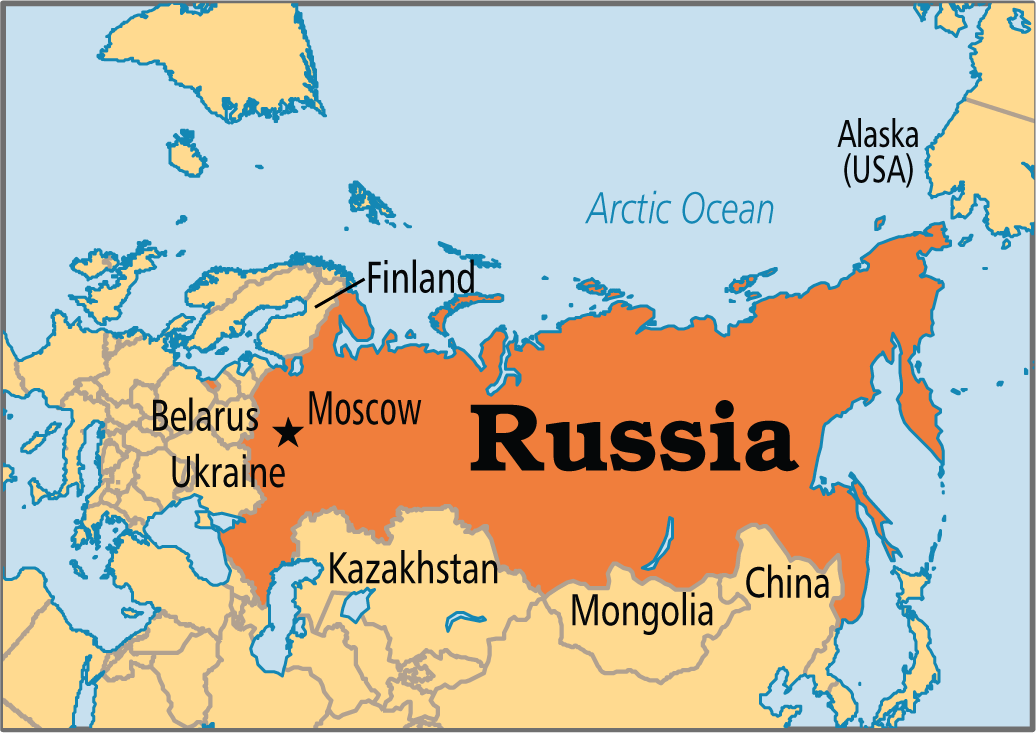Constitutional Amendments in Russia | 03 Jul 2020
Why in News
The Russian citizens have supported a set of constitutional amendments including continuation of presidency by Vladimir Putin in a recently held referendum in the country.
- The referendum also included clauses related to the reorganisation of the government, introducing a higher minimum pension and wages, a ban on gay marriage, restricting top officials from holding dual citizenship, enshrining “faith in God” as a core value and emphasising the primacy of the Constitution over international treaties and rulings.
- A referendum is a direct and universal vote in which an entire electorate is invited to vote on a particular proposal and can have nationwide or local forms.
- It supports direct democracy.
- The referendum was originally planned for April 2020 but was delayed due to the coronavirus outbreak.
Key Points
- Clause for Continuation of Presidency Term:
- The Russian Constitution bars more than two consecutive presidential terms.
- The new Constitution doesn’t change the two-term limit in theory, but in practice, it resets Mr Putin's terms so that it will be the first election under the new Constitution for him, to be held in 2024.
- According to the referendum, the current President of Russia Vladimir Putin can stay in power for two more six-year terms (until 2036) after his term expires in 2024.
- Significance:
- The amendments have enhanced the powers of the State Council, an advisory body. Overall, the changes will help to tighten his grip over Russia.
- The proposed changes had already been approved by Parliament and the Supreme Court but it was put to vote to gain legitimacy and popular approval.
- The preliminary results released by the Election Commission showed that almost 78% of voters endorsed the amendments, while 21% voted against them. Some 65% voters had turned up to cast their ballots.
- Background:
- Mr. Putin became President for the first time in 2000. After completing his two terms, he swapped the presidency with Mr. Dmitry Medvedv. During the Medvendv presidency, Mr. Putin remained the centre of power as Prime Minister.
- Mr. Medvedv served one term and stepped aside for Mr. Putin to assume the presidency again. Thus, Mr. Putin is now into the second term of his second stint as President, which will expire in 2024.
- If Mr. Putin stays in power for two more terms, he will be the longest serving Russian leader since Peter the Great.
- The Tsar, who built the Russian Empire, was in power for 43 years until his death in 1725.
- Mr. Putin became President for the first time in 2000. After completing his two terms, he swapped the presidency with Mr. Dmitry Medvedv. During the Medvendv presidency, Mr. Putin remained the centre of power as Prime Minister.
- Challenges Ahead:
- According to the International Monetary Fund (IMF), the economy hasn’t expanded in dollar terms for a decade. The Fund estimates the Gross Domestic Product (GDP) to shrink by 6.6% in 2020.
- The pandemic affecting local businesses and the falling oil prices reducing exports revenue.
- In foreign policy, Russia’s relationship with the West remains troublesome. The sanctions imposed on Russia after the annexation of Crimea in 2014 are still in place.
- Though Russia managed to prevent the collapse of the Syrian regime after its intervention in the civil war, the Syrian crisis is far from resolved.
- Russia also faces allegations of interference in the elections of other countries.
Way Forward
- Earlier, Mr. Putin had inherited a Russia that was in an economic free fall.
- Now Mr. Putin needs to rebuild the state and the economy and restore some of the country’s lost global clout.

